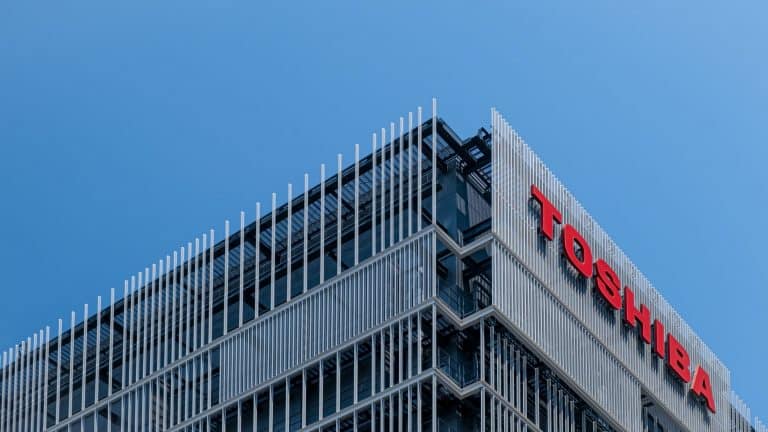After years of controversy, Japan’s Toshiba has announced plans to split into three separate firms in an effort to placate dissident shareholders who have called for a drastic makeover.
As GE has done, Toshiba will split off its energy and infrastructure operations into separate companies, while its device and storage businesses will form the backbone of a separate firm.
Kioxia and other Toshiba assets will fall under the third’s purview. An activist shareholder exit is part of a five-month strategic review, people with knowledge of the subject have claimed, according to a statement from the company.
After the market had closed in Japan, the new plan was unveiled. Shares of the company’s Frankfurt-listed stock plunged 4% at the outset on Friday, underscoring investors’ displeasure with the proposal.
Taking Toshiba private would conflict with requests from certain shareholders for the company to be broken up. But the company’s strategic review committee claimed that option had prompted worries internally about its impact on business and the retention of employees.
Japan’s national security law and anti-trust officials have also raised reservations about finalising a merger, according to a statement from a private equity group.
Chief Executive Satoshi Tsunakawa said at a press conference that “after extensive discussion, we came to the conclusion that this strategic reorganisation was the right solution.”
He went on to say that despite the existence of activist shareholders, Toshiba would have decided to separate and that Japan’s strong commerce ministry had not objected to the idea. Toshiba intends to complete the reform in two years.
Shareholders of a Japanese activist fund that owns shares in Toshiba have expressed disappointment with the company’s proposal and believe it is unlikely to be approved at an upcoming extraordinary general meeting (EGM).
“Activists now have two options: either sell and leave for two years and return in two years or purchase additional shares and fight this thing at the EGM. Neither option is ideal, though. Let me go and think about what I should do, please “the portfolio manager, who asked to remain anonymous, stated
Toshiba intends to return around JPY 100 billion (roughly Rs. 6,530 crores) to shareholders over the next two financial years as part of the reform.
“monetize” its interests in Kioxia and deliver the net proceeds to stockholders as soon as practical,” the company stated in a statement. However, it did not go into detail about whether or not it was still interested in an IPO or would be examining alternative possibilities as a result of this statement.
Toshiba’s investment in Toshiba Tec Corp, a manufacturer of printing and retail information systems, would also be retained.
Shareholder sources said that some Toshiba investors aren’t sure that a break-up will produce value.
Fumio Matsumoto, the chief strategist at Okasan Securities, stated, “It makes sense to split if the valuation of a highly competitive industry is impeded by other enterprises.”
In the absence of such a firm, the break-up generates three uninspiring mid-sized enterprises,” he writes.
Since an accounting scandal erupted in 2015, the 146-year-old business has gone from crisis to crisis. As part of a $5.4 billion (approximately Rs. 40,190 crore) financial injection from 30+ offshore investors, it avoided delisting but brought in activist shareholders like Elliott Management, Third Point and Farallon. Two years later.
Since then, the relationship between Toshiba’s management and its overseas shareholders has been the subject of much attention, and in June, a shareholder-commissioned investigation concluded that Toshiba collaborated with Japan’s trade ministry to prevent foreign investors from participating in last year’s shareholders meeting.
Toshiba produced a second investigation on Friday that indicated that officials, including its former CEO, had acted unethically but not unlawfully in their conduct.
Toshiba’s “extreme caution about foreign investment funds” and “its lack of willingness to create a sound relationship with them” were also blamed for the company’s woes, according to the report. Toshiba’s second-quarter operating profit nearly quadrupled as a result of the COVID-19 epidemic, which hit the company hard in the first quarter (roughly Rs. 1,985 crore).

